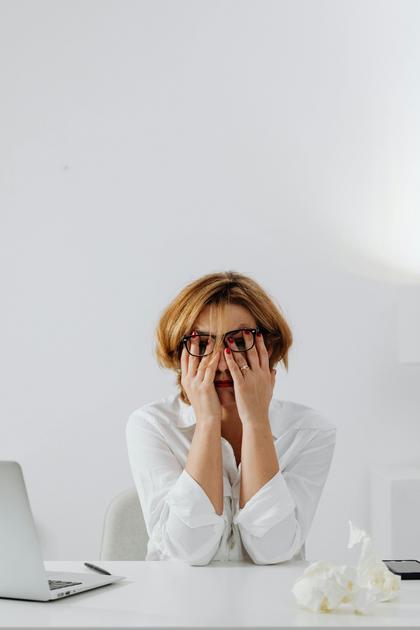Woman, Do You Suffer From Anxiety and Burnout?
As modern life continues to demand more from us, the prevalence of anxiety and burnout among women is on the rise. Our latest video, titled “Woman, Do You Suffer From Anxiety and Burnout?”, dives deep into this issue, providing both insight and actionable strategies for managing these mental health challenges. In this blog post, we explore the main points from the video and expand on them to offer a comprehensive guide.
Understanding Anxiety and Burnout
Anxiety is not just feeling uneasy before a big event; it can be a chronic mental health issue affecting daily life. Burnout, often related to work stress, is a state of emotional, physical, and mental exhaustion caused by prolonged stress. Together, they create a complex set of mental health challenges that affect women uniquely due to societal and biological factors.
Recognizing the symptoms early can be crucial in managing these conditions. Common signs include chronic fatigue, insomnia, frequent headaches, and feelings of overwhelm. It’s essential to acknowledge these symptoms and seek professional help if needed. Many women feel stigmatized for struggling with mental health, but it’s important to remember that seeking help is a sign of strength, not weakness.
Effective Coping Mechanisms
Once you’ve identified that you are experiencing anxiety or burnout, implementing effective coping mechanisms is key. Regular physical exercise, mindfulness practices like meditation and yoga, and maintaining a balanced diet can significantly alleviate symptoms. These practices enhance your mental resilience and provide a buffer against day-to-day stressors.
Incorporating small changes into your daily routine can have a big impact. Start by scheduling short breaks throughout your day. This not only boosts productivity but also helps in resetting your mind. Remember that your mental health is as important as your physical health, and taking care of it should be a priority.
The Role of Community and Support
Building a supportive community around you can make a significant difference when dealing with anxiety and burnout. Friends, family, or support groups can provide the emotional backing and empathy needed during tough times. Interaction with peers who understand your struggles can be both liberating and reassuring, reducing feelings of isolation.
Online communities and forums specifically focused on mental health can also be a great resource. These platforms allow for anonymous interaction, which might be beneficial if you are not yet comfortable sharing your struggles openly. Sharing experiences and receiving support that validates your feelings can help in the healing process.
Professional Help: Therapy and Counseling
When self-help strategies aren’t enough, professional therapy and counseling can provide additional support. Cognitive Behavioral Therapy (CBT) is a common approach that focuses on managing anxiety by changing the thinking and behavior patterns that cause distress. Therapists can provide tailored strategies and tools to manage your symptoms effectively.
It’s vital to consult a mental health professional if anxiety and burnout continue to impact your quality of life. They can diagnose specific conditions and suggest therapy types that best fit your needs. Seeking therapy is a proactive step towards better mental health and should be considered a positive investment in oneself.
Adapting to a Healthier Lifestyle
Adapting to a healthier lifestyle can have profound effects on your mental well-being. This includes improving sleep hygiene, reducing exposure to negative news, and practicing gratitude. It is said that “change is as good as rest”, and making lifestyle adjustments can rejuvenate your mental outlook.
Finding activities that bring joy and fulfillment are also crucial. This could be a creative hobby, volunteering, or anything that diverts your mind constructively. These activities not only distract from stress but also reinforce a sense of accomplishment and purpose, essential for countering burnout.
FAQ
What are the signs of burnout?
Burnout manifests as chronic fatigue, cynicism about work, reduced professional efficacy, and might also include physical symptoms such as headaches or stomach issues. It often occurs when you feel overworked and undervalued, especially in high-stress environments without adequate support.
How can I manage anxiety without medication?
Managing anxiety without medication is possible through lifestyle changes such as regular exercise, a healthy diet, and mindfulness practices. Cognitive behavioral techniques, support groups, and stress management skills can also be highly effective. It’s important to find and incorporate what works best for you consistently.
Why do women experience anxiety more often than men?
Social and biological factors contribute to higher anxiety rates among women. Hormonal fluctuations, societal expectations, and a greater tendency for women to internalize stress contribute significantly. Awareness and tailored support can help address and manage these anxieties more effectively.
What is Cognitive Behavioral Therapy?
Cognitive Behavioral Therapy (CBT) is a form of psychological treatment that addresses dysfunctional emotions, behaviors, and thoughts. Unlike traditional therapy, it focuses on solutions, encouraging patients to challenge distorted cognitions and change destructive patterns of behavior.
When should I seek professional help for anxiety and burnout?
If anxiety and burnout symptoms severely disrupt daily activities, relationships, or quality of life, seek professional help. Persistent feelings of distress, helplessness, and a significant impact on professional life or personal relationships indicate it’s time to consult a mental health specialist.
Watch the Video:














